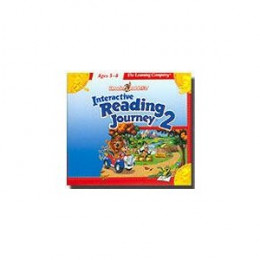What are the best tools for helping kids learn to read?
What are the best tools for helping kids learn to read?
Hooked on Phonics? Dr. Seuss books? Reading groups? Online websites? What are some helpful tips you can share?My favorite program - at least in a school setting - is SIPPS - I can't remember what the acronym stands for, but we just started this in our school this year. Already, my students - first graders with a variety of reading disabilities have began reading! My little boy with dyslexia is even doing well with this program. In 15 years of teaching, this is the best reading program I have seen and used. My students are READING!
There are a few computer sites, such as Star Fall, and software such as Reader Rabbit. I also love using a basic book for encouraging the love of reading.
There are a lot of tools but the easiest and for me most effective is to read read read to kids, and make if fun with funny voices and gestures. Kids are natural born hams and they want to join in and act it out. My girls and I used to have so much fun reading together.

We had great success with the Reader Rabbit Learning software; specifically/especially, Reader Rabbit Learning Journey II; this program is amazing and it even assisted me significantly with resolving an elective mutism case over a decade ago...One thing that my kids liked when they were first learning to read was a set of books I had bought that came with audio tapes so that they could hear the stories as they read them. So they had both a visual and auditory component to them. Of course, the most obvious variation of this is reading with your kids. THey read the words with you.
I have but one suggestion Victoria, one that I have seen work. Find a book that is so compelling that a child cannot put it down. We adults know what this means. When my son was an adolescent, he was not much of a reader. I handed him Jaws by Peter Benchly and said" all I want you to do is read the first chapter" (the one where the girl gets stalked and eaten by the shark), and If you like it then it's up to you to read further. Well, Jaws is the icon of non-put-downable books. Now an adult, he has been an avid reader ever since.
Proper phonics (i.e. one sound corresponding to 1, 2, 3 or more letters) is the best way of teaching reading. A great programme for that is THRASS (Alan Davies) which teaches the 44 sounds of English by giving spelling choices for each one. It's clear, fun and has proven results. Reading and spelling and writing go together, are self-supportive.
If you don't have money for marketed resources, then the following are a great help when teaching reading:-
plastic letters with vowels in red and consonants in blue; these mean a child can try to spell with them and reach the correct version without having to write down incorrect responses first - it promotes success and helps memory, being multi-sensory
writing from a child's dictation describing a picture, then having the child read it back to you
making it fun, by starting with words, then phrases, then sentences, all the while using encouragement and reward (nothing is 'wrong', everything is 'a brilliant effort' or 'correct!')
Read to them often; let them follow easier texts, or just let them listen to wonderful stories and the interest will inspire the will to learn.
For those who want more help, see my hubs on helping dyslexic children.I have a one-word answer: PHONICS. I bought my youngest a phonics course when he was four years old, and they were on plastic. (Gosh, that was too many years ago.) Anyway, he took to them like a duck to water. he would get his records and put them on by himself and listen to them. I rarely had to help him. He was reading by himself within a few months, and had such a sense of accomplishment. Then he read his own Dr. Seuss, The Jungle Book, etc.. When he was 13, the school counselor told me that my son was reading on the college level, and that his own son was not that advanced a reader.
That is my hint. Buy the kid a set of phonics, show him how much fun it is, then turn him loose. He will amaze you. I think we try to do too much for our children. We need to remember that we cannot live for them or through them.The best tool you can give your kid to learn to read is your paitence and time. Paper and writing instruments, an alphabet poster, tons of books and phonics is the way to go. The library is one resource not to be underused. A bi-weekly trip is great.
When you read to them regularly, their interest in learning how to read will grow. Ask the child to "read" to you. It may not be the right words, but retelling the story in his own words is part of comprehension and before you know it, the words he says will closely match the words in the book. Make it fun, make games up - reading signs, etc, introduce them to easy sight words (on fun colored cards) and gradually build on that. There are some fun software programs (my son loved Star Fall), but I hesitated to use computer programs because kids in today's society already use the computer too much. Take a lot of trips to the library - they often have story time for different ages - and when they get to where they can write their name, get them their own library card!
I use all of those mentioned.
The Hooked on Phonics? Yes. This is a good divertion.
Dr. Seuss books? Absolutely helpful.
Reading groups? This is another way of getting into involvement.
Online websites? Again, a good divertion for kids. You kids usually get bored easily.
Good helpful things I can share is to study the kid's behavior and hit him hard on that interest. I hope this helps!Reading from the time that they are babies is the easiest way to teach a child to love to read and they will easily learn to read. Children whose parents do not read with them are at a huge disadvantage. The children who struggle in school are those who are behind in reading.
Kids love to have someone read to and with them. Spending the time with them to read is well worth the investment. Not only will it mean success for them in school, but it will also strengthen the bond between the parent and child. It can be a great way to have discussions about sensitive matters or to teach them about getting along with others.
Yes, there's all kinds of programs out there, but time spent reading will make a better reader.
Best ~ fitmomExcellent question, Victoria! I think the most effective approach is to combine direct teaching of phonics (letter-sound correspondence) with excellent literature. There are many phonics-based programs available on the web and at major bookstores. I suggest teaching the most obvious letter sounds first, and then work your way up to challenging vowel sounds, q's, y's, and x's. It's easier to teach the "B as in Ball" sound than "E as in Egg."
I've found that even very young children are excited to learn to read. The only way to really build on that inspiration though, is to develop a strong love of literature with them. When just beginning the process, choose some books that only contain illustrations, like "The Red Book" by Barbara Lehman. Let the child make up the story to accompany the pictures. If you find a particular book that your child seems to love, don't be afraid to reread it with them. I wonder if it's even possible to count the number of times we read "Goodnight Moon" by Margaret Wise Brown. Eventually, they'll memorize it and you can try to "accidentally" make mistakes while reading. They seem to find this hilarious and love to correct their parents!
This is absolutely, far and away, my favorite part of watching children develop. It is SO much fun to watch as they begin to figure out the connections between text and language. Such an exciting time for them!Dr. Seuss books rule in my book. Both my brother boys were reading on their own by age 3. It starts with you enthusiastically reading to them on a daily basis.
Masses and masses of books. Any and all kinds. It doesn't really matter what books you use. My eldest son learned to read just fine without phonics, but my middle and youngest sons did learn phonics and have progressed at a very similar pace to their older brother.
I don't like kids staring at computer screens, so I would never teach a child to read using a website. (We do use IXL for maths - possibly hypocritical of me, but it's what works for us!)
My children have always been surrounded by books, and they all love to read. I've read to them since they were babies, and they still love a bedtime story. Sometimes they do the reading (my youngest, at 5, likes to reread a story that I've already read to him, and tries to remember as many of the words as he can - he's got a very good memory for words), and sometimes I read.
Just read, read, read - however you teach them, as long as you immerse them in words and books and pictures, silly voices and fun, they'll do just fine. And it doesn't matter how long it takes them - a lot of parents get hung up on their children not learning to read as quickly as other children. That really doesn't matter. As long as they love reading, love being read to as well, there should be no pressure on them to get it right. They're more likely to learn quickly if they're having fun anyway.You can use a very simple website like http://k8schoollessons.com/ it is completely different from other websites. It takes off the Gaming mindset. Checkout for filling the blanks ideal for a infant to start reading basic stuff.
Related Discussions
- 12
What is the best way to teach a child to read?
by Stephanie Marshall 13 years ago
What is the best way to teach a child to read?Whether you are homeschooling or helping your child get ahead in school, what is useful in teaching reading? Which approach is best - phonics or whole language?
- 19
How can I help a reluctant reader to learn how to read?
by Leah Lefler 11 years ago
How can I help a reluctant reader to learn how to read?My son is six years old and an emerging reader, but HATES practicing his sight words and doing reading homework. What are some unique, fun ideas to help him gain enthusiasm for reading?
- 9
How do you go about teaching a child to read?
by Amanda S 13 years ago
How do you go about teaching a child to read?
- 8
What is your best tip for parents helping their children learn to read?
by Sturgeonl 12 years ago
What is your best tip for parents helping their children learn to read?
- 10
What are the best books that every child should read before the age of 13?
by Robie Benve 13 years ago
What are the best books that every child should read before the age of 13?
- 12
Starting Education at 3
by Rachel Woodruff 15 years ago
My son will be three years old soon, I would like to start teaching him some things, but I am not sure beyond ABC's what is a reasonable amount of learning I should expect out of him. Is three to young to learn how to read? What about writing? and how many hours a day should I spend on schooling? I...
























